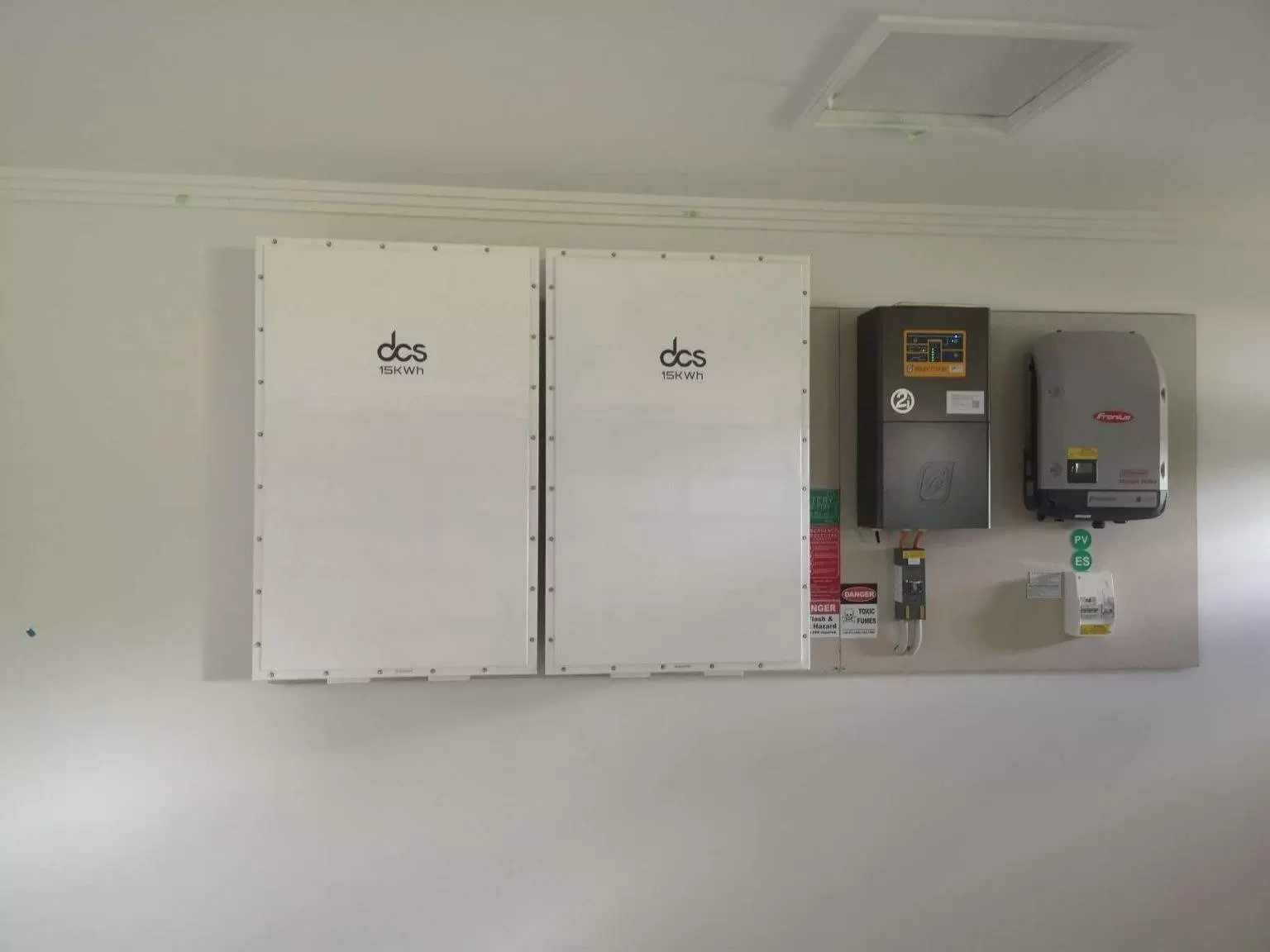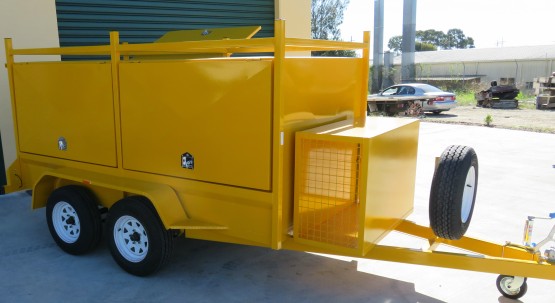In the quest for sustainable energy solutions, one critical component that can significantly enhance your solar setup is lithium ion solar batteries. These batteries provide efficient and long-lasting power storage, allowing homeowners and businesses to maximise their solar energy production. As the demand for clean energy continues to grow, understanding the benefits of lithium-ion solar batteries becomes essential for anyone looking to optimise their solar investment.
Understanding the Basics of Solar Energy Systems
Solar energy systems primarily consist of photovoltaic (PV) panels that capture sunlight and convert it into electricity. However, the energy production from these panels only sometimes aligns with consumption needs, leading to potential inefficiencies and wasted energy. This is where energy storage solutions become crucial.
Lithium-ion solar batteries can store excess energy generated during the day, making them available for use when solar energy production is low, such as at night or on cloudy days. This ensures a consistent and reliable power supply, regardless of sunlight availability, and significantly enhances the overall efficiency of the solar energy system.
The Advantages of Lithium-Ion Batteries over Traditional Options
Lithium-ion batteries offer several key advantages over traditional lead-acid batteries. Firstly, their compact and lightweight design requires less space and is easier to install, making them ideal for various solar setups. Their high energy density allows for greater storage capacity, enabling users to store more energy in a smaller footprint. Lithium-ion batteries boast a longer lifespan, often lasting up to 15 years or more with proper care, compared to the typical 3 to 5 years for lead-acid batteries.
Another significant benefit is their ability to handle deep discharges without damage, maintaining performance even when discharged to lower percentages. This feature translates into more usable energy and greater overall efficiency. Lithium-ion batteries also charge faster and more efficiently, reducing the time required to replenish stored energy. Furthermore, their low self-discharge rate ensures that stored energy remains available for extended periods, even when the battery is unused.
Maintenance is another area where lithium-ion batteries shine. They require less frequent upkeep than lead-acid batteries, which often need regular water topping and equalisation charges. This reduced maintenance demand saves time and lowers the long-term operational costs associated with energy storage.
How Lithium-Ion Solar Batteries Improve Energy Efficiency
Lithium-ion solar batteries play a pivotal role in enhancing the energy efficiency of solar systems. By storing surplus energy generated during peak sunlight hours, these batteries ensure that power is available during periods of low production, such as nighttime or cloudy days. This capability reduces dependency on the grid and mitigates the inefficiencies associated with intermittent solar energy production.
One of the standout features of lithium-ion batteries is their high round-trip efficiency, which means a higher percentage of stored energy can be retrieved for use. This efficiency translates into more effective utilisation of solar power, minimising wastage and making the most of every kilowatt generated by your solar panels.
Additionally, lithium-ion batteries’ rapid charging and discharging capabilities allow for quicker energy storage and release. This responsiveness is particularly beneficial for managing energy loads and ensuring a stable power supply during peak demand. Their ability to handle deep discharges without significant degradation further ensures a consistent performance over time, contributing to a reliable and efficient solar energy system.
The low self-discharge rate of lithium-ion batteries also means that stored energy remains available for extended periods, further enhancing the overall energy efficiency of your solar setup. Integrating these advanced batteries into your solar system optimises energy usage and reduces reliance on external power sources.
Long-Term Financial Benefits of Investing in Off Grid Solar Batteries
Investing in off grid solar batteries offers considerable long-term financial benefits that can enhance the overall value of your solar energy system. One of the primary advantages is the potential for significant savings on electricity bills. By storing excess solar energy generated during peak production times, you can utilise this power during periods of low sunlight, thereby reducing or eliminating your dependence on the grid and the associated energy costs.
Additionally, off-grid solar batteries can protect against rising electricity prices. As energy costs continue to climb, having your own stored power source makes you less vulnerable to rate hikes, ensuring more predictable and stable energy expenses over time. The longer lifespan of lithium-ion solar batteries, often up to 15 years, means fewer replacements and lower maintenance costs, contributing to long-term savings.
Furthermore, some regions offer financial incentives, rebates, or tax credits for installing solar energy storage solutions. These incentives offset the initial investment cost, making the transition to off-grid solar batteries more affordable. The increase in property value is another financial benefit; homes and businesses equipped with efficient solar energy systems and storage solutions are often more attractive to buyers, potentially increasing the resale value of your property.
Environmental Impact of Lithium-Ion Solar Batteries
Lithium-ion solar batteries play a crucial role in promoting environmental sustainability by enabling the efficient storage of renewable energy. Their ability to store solar power reduces the reliance on fossil fuels, significantly cutting down carbon emissions and contributing to cleaner air. This makes them a vital component in the fight against climate change.
However, it’s important to acknowledge the environmental challenges associated with lithium-ion batteries. Mining lithium, cobalt, and other essential materials can have significant ecological impacts, including habitat destruction and water pollution. Nevertheless, the industry is making strides in developing more sustainable mining practices and improving material use efficiency.
Battery recycling is another area where significant advancements are being made. Recycling initiatives are growing, aiming to recover valuable materials and reduce the need for new raw material extraction. These efforts minimise environmental harm and contribute to a more circular economy, where resources are reused and waste is reduced.
Overall, while there are environmental considerations to consider, the benefits of using lithium-ion solar batteries for clean energy storage far outweigh the drawbacks. By continually improving mining practices and recycling methods, the environmental footprint of these batteries can be further minimised, making them an even more attractive option for sustainable energy solutions.
Installation and Maintenance Tips for Off Grid Batteries for Solar
Proper installation and maintenance of off grid batteries for solar batteries are crucial for ensuring their optimal performance and longevity. First, it is vital to select an appropriate location for battery installation. Choose a dry, well-ventilated area protected from extreme temperatures and direct sunlight to prevent overheating and ensure safety.
Always follow the manufacturer’s guidelines and consult a professional installer during installation. Proper wiring and connections are essential to prevent short circuits or inefficiencies in your solar system. Ensure all cables are correctly sized to handle the power load and minimise energy losses.
Once installed, regular maintenance is key to maintaining the efficiency and lifespan of your lithium-ion solar batteries. Periodically check for wear, corrosion, or damage to the battery terminals and connections. Keep the battery and its surroundings clean and free of dust or debris that could impact performance.
Monitoring software can be highly beneficial. It lets you track the battery’s performance, charge levels, and health status in real-time. This data can help identify potential issues early and prevent costly repairs.
While lithium-ion batteries generally require less maintenance than traditional options, periodic professional inspections are still advisable. These inspections can ensure that the battery management system is functioning correctly and that the overall system remains in optimal condition.
Choosing the Right Lithium-Ion Battery for Your Needs
Choosing the right lithium-ion battery for your solar system involves several important considerations. First, evaluate your energy consumption patterns to determine the necessary storage capacity. This ensures you select a battery that can efficiently meet your household or business energy demands. Next, examine the battery’s cycle life, which indicates how many charge and discharge cycles it can undergo before its performance diminishes. A higher cycle life translates to longer-lasting reliability.
Discharge rate is another crucial factor, as it affects how quickly the battery can release stored energy. Ensure the battery you choose has a discharge rate that matches your usage requirements, especially if you anticipate high-demand periods. Additionally, consider the manufacturer’s warranty, which can provide peace of mind and protection for your investment.
Cost is also important, but remember that the cheapest option is sometimes the best in the long term. Look for a balance between price and performance to get the best value. Consulting with a solar energy professional can provide personalised recommendations based on your needs and help you navigate the various options.
Common Misconceptions about Lithium-Ion Solar Batteries
Misconceptions often surround lithium-ion solar batteries. A prevalent myth is that their upfront costs make them an impractical investment. However, while the initial expense might be higher than traditional batteries, their long-term efficiency and savings often justify the price.
Another common fallacy is the belief that lithium-ion batteries are prone to overheating and unsafe. In reality, modern lithium-ion batteries incorporate advanced safety features and thermal management systems designed to mitigate these risks, making them a reliable and safe option for energy storage.
Additionally, some people mistakenly think that lithium-ion batteries require frequent maintenance. Contrary to this belief, these batteries require less upkeep than their lead-acid counterparts, reducing long-term operational costs and effort. These misconceptions can deter potential users from realising the full benefits of lithium-ion solar batteries, but a closer examination reveals their substantial advantages in efficiency, safety, and cost-effectiveness.
Conclusion
Lithium-ion solar batteries present a transformative opportunity for both homeowners and businesses seeking to enhance the efficiency and reliability of their solar energy systems. By storing excess energy generated during peak sunlight hours, these batteries ensure that power is available during periods of low production, reducing dependence on the grid and optimising energy usage.
Their compact and lightweight design and high energy density allow for greater storage capacity in a smaller footprint, making them ideal for various setups. With a lifespan of up to 15 years, these batteries offer a long-term, cost-effective solution that outperforms traditional lead-acid options in both durability and efficiency.
Integrating lithium-ion solar batteries into your energy system is a significant step towards a more sustainable and economically efficient future.
FAQs
Q: How long do lithium-ion solar batteries last?
A: With proper care and maintenance, lithium-ion solar batteries can last 10 to 15 years, offering long-term reliability.
Q: Can I install lithium-ion solar batteries myself?
A: Although it might be tempting to undertake a DIY installation, it’s advisable to have a professional installer handle the setup. This ensures the battery system is safely and optimally integrated into your solar energy system.
Q: Are lithium-ion batteries recyclable?
A: Yes, lithium-ion batteries are recyclable. Ongoing efforts are improving recycling processes, making it easier to recover valuable materials and reduce environmental impact.
Q: Do lithium-ion batteries require special maintenance?
A: Lithium-ion batteries are relatively low-maintenance compared to traditional options. However, routine checks and monitoring can help maximise their lifespan and ensure consistent performance.
Q: What happens if I don’t use all the stored energy?
A: Unused energy is typically retained for future use. Energy retention efficiency will depend on the specific battery system and its management features, allowing you to make the most of your solar energy production.


